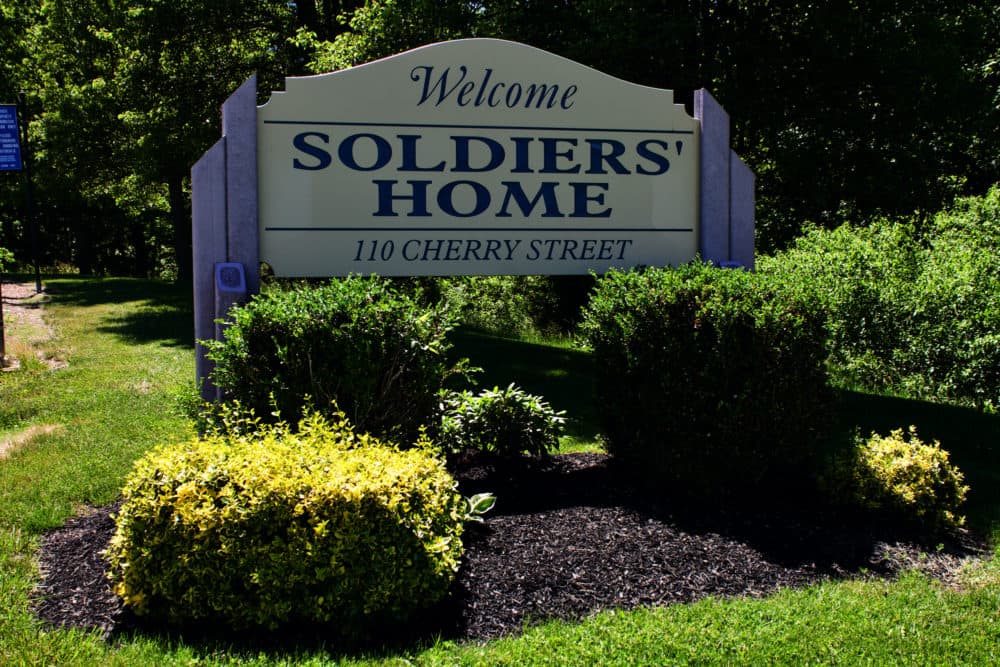Advertisement
House passes Soldiers' Home oversight bill

Without the support of the original bill's lead sponsor and amid concerns from a former veterans' affairs secretary, the House on Thursday approved redrafted legislation aimed at reforming oversight and governance at the state's long-term care facilities for veterans.
The bill that cleared the House with a 156-1 vote seeks several major changes at the Holyoke Soldiers' Home and the Chelsea Soldiers' Home after a deadly COVID-19 outbreak swept through the former facility nearly two years ago, leading to the deaths of dozens of veterans and spawning multiple independent investigations.
Its reforms include a new requirement that the top official at each facility hold a license as a nursing home administrator, the launch of a new statewide veteran advocate office, and creation of ombudsman roles to oversee operations in Holyoke and Chelsea.
Lawmakers made multiple references to the March 2020 tragedy in the Holyoke facility, in which a failure to mitigate a COVID-19 outbreak resulted in the deaths of at least 76 veteran residents. Several independent investigations later attributed the crisis to mismanagement, a muddied chain of command and governing shortfalls.
"The legislation before us today is not about blame. It's not about partisan politics, and it's certainly not about control," Veterans and Federal Affairs Committee Chair Rep. Paul McMurtry said while introducing the bill. "It is first about ensuring that a tragedy like this never happens again and providing our veterans the best possible care we can."
However, the bill that top House Democrats brought forward for a vote had been reshaped in several key sections from the version that Rep. Linda Dean Campbell and Sen. Mike Rush filed last fall after they oversaw a nearly year-long legislative probe into the Holyoke home tragedy.
The original draft, Dean Campbell said in an interview, was "much more comprehensive."
"This is a very different bill than the one that was filed by Senator Rush and I resulting from the input we received during the special investigation," Dean Campbell, a Methuen Democrat, said.
Dean Campbell voted present on the bill in Thursday's session, opting neither to support nor to outright oppose it over her concerns with the changes.
Democrat Rep. Christopher Markey of Dartmouth, who filed several unsuccessful amendments that would have reintroduced sections of Dean Campbell's version stripped from the leadership-backed bill, cast the lone dissenting vote.
The version that Dean Campbell and Rush filed would have elevated the secretary of veterans' services to a full Cabinet-level position, up from its current home under the umbrella of the Executive Office of Health and Human Services.
That shift, supporters say, would help define a clear chain of command and give the veterans' services secretary direct access to the governor to allow for more immediate response in cases of emergencies.
"We felt that needed to be clear, because we felt that in our hearings, in our investigation, a muddled chain of command was a large part of why the crisis (in Holyoke) unfolded the way it did," Dean Campbell said. "A clear chain of command, we feel, is absolutely essential moving forward."
But the House leadership bill omitted any language moving that secretary into the Cabinet, and on an unrecorded voice vote without any debate, the House rejected a Minority Leader Brad Jones amendment seeking to restore it.
Dean Campbell's bill also would have given the governor authority to appoint or remove a facility's superintendent and deputy superintendent based on consultation with other officials. Hiring and firing power emerged as a key point of tension in Holyoke because of concerns about former Superintendent Bennett Walsh's qualifications.
The House-approved bill, however, calls for a statewide Veterans' Homes Council to appoint superintendents after reviewing nominations submitted by each home's board of trustees, according to a summary. The council would then have authority to remove a superintendent on the recommendation of the governor or a facility's board of trustees.
With those changes in place, Dean Campbell said she is no longer sure what the chain of command for veterans' homes will be under the revised bill.
House leaders also reshaped the original proposed governance structure for the two state-run veteran long-term care facilities.
Dean Campbell and Rush proposed creating a 12-member Veterans' Homes Advisory Council, all of whom would be appointed by the governor. Their bill outlined several requirements for who could serve on the panel, designating seats for individuals with experience in long-term care, nursing, clinical services, and labor relations as well as seats for female, nonwhite and LGBTQ veterans.
The updated House bill creates a 17-member Veterans' Homes Council. Seven members would be appointed, and each home's five-member board would serve on the larger council.
The legislation does not appear to set any requirements that members have specific professional experience or come from underrepresented communities.
Coleman Nee, a former Massachusetts secretary of veterans' affairs who today serves on the legislative team at Disabled American Veterans Department of Massachusetts, told the News Service he believes the board membership requirements in the original bill were "a very important provision."
"I think it makes the governance of these things more convoluted than it is now," Nee said about the redrafted bill. "I think it will diminish the voices of marginalized veterans, veterans of color, women veterans, LGBTQ veterans. I think we'll continue to see disparities in the census of these locations in terms of who they're serving and from what areas of the commonwealth."